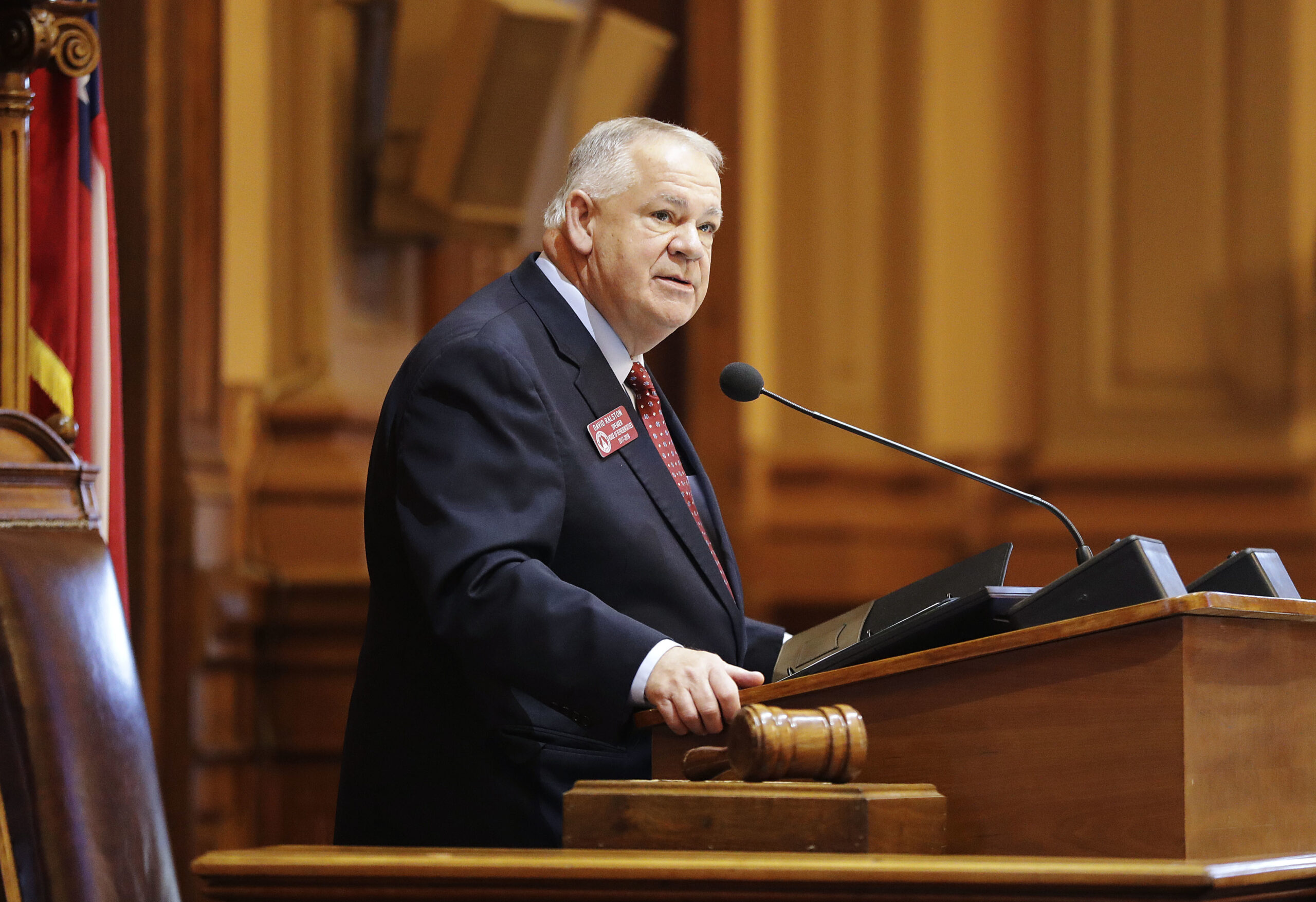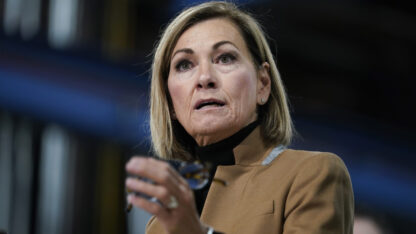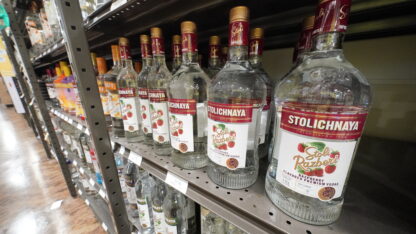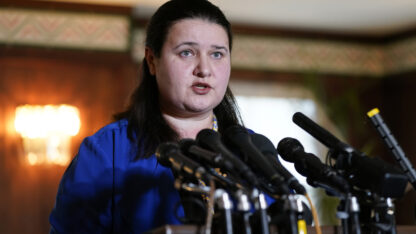Seeking to tighten the financial squeeze on Russia over its war against Ukraine, governors and lawmakers in numerous U.S. states were taking actions Monday to pull state investments from Russian companies while encouraging private entities to do the same.
The effect of sanctions by U.S. states often pales in comparison to national ones, but state officials said they wanted to show solidarity with Ukraine and do what they could to build upon the penalties imposed on Russia by the U.S. government and other Western nations.
Georgia House Speaker David Ralston, a Republican, got a bipartisan standing ovation Monday when he told representatives he would seek to have the state’s retirement funds quickly divested from any Russian assets.
“I don’t know about y’all, but I don’t want one penny of Georgians’ money going to subsidize Vladimir Putin,” Ralston said. “While our role in international affairs is limited, we make clear we stand with those who want to live in peace.”
Georgia Secretary of State Brad Raffensperger, who oversees state business registrations, on Monday also called upon Georgia-based businesses and investors to stop doing business with Russia or any companies that support Russia.
Some state actions have been largely symbolic. Over the weekend, Pennsylvania Gov. Tom Wolf’s administration lit the front of the Capitol in the yellow and blue colors of Ukraine’s flag.
But other state actions have potential teeth.
On Monday, the Indiana House passed legislation that would block Russian-controlled businesses and nonprofits from acquiring property in Indiana for one year. It now goes to the Senate.
“Indiana will not be a safe haven for ill-gotten Russian funds, nor for its oligarchs trying to find financial shelter in the wake of Putin’s unconscionable invasion of Ukraine,” Democratic state Rep. Ryan Dvorak said while proposing the amendment last week.
New York Gov. Kathy Hochul signed an executive order Sunday forbidding her state from doing business with Russia. She ordered state agencies to divest money and assets from companies or institutions aiding Russia in its war against Ukraine. The Democratic governor also said New York would welcome Ukrainian refugees, noting that New York already is home to the largest Ukrainian population in the U.S.
“We strongly condemn the action of Putin and Russia for this unprovoked attack, which is now leading to atrocities against innocent human beings,” she said.
Pennsylvania lawmakers said Monday they will file legislation requiring state pension funds to pull investments connected to the Russian government and its critical supporters. The state Treasury Department also has begun divesting its minimal holdings in Russian-based companies.
In a memo to fellow senators, Democratic state Sen. Sharif Street said Pennsylvania “must wield our economic power to ensure that Russia faces grave consequences for their flagrant violations of international law and human cooperation.”
Pennsylvania House Majority Leader Kerry Benninghoff, a Republican also seeking co-sponsors for the legislation, said state lawmakers “have a moral obligation to ensure that our public fund investments are not inadvertently supporting those who are engaging in an unprovoked invasion of their democratically elected neighbors.”
Arkansas lawmakers also have filed proposals authorizing banks in the state to freeze the assets of Russian oligarchs and to require a boycott of Russian-made goods.
Colorado Gov. Jared Polis, a Democrat, has banned state agencies from doing business with Russian state-owned firms and their subcontractors. Colorado’s $61 billion state pension fund is pulling $8 million from a Russian state-owned bank identified in federal sanctions.
Governors in New Jersey and Virginia also have ordered a review of whether any state money is going to Russian companies or investments supporting the Russian government.
Some governors are seeking to sever good-will relationships between their home states and those in Russia. Virginia Gov. Glenn Youngkin, a Republican, asked the cities of Norfolk and Roanoke to end their sister city partnerships with Russian cities. Iowa Gov. Kim Reynolds, a Republican, has called for an end to its sister state relationship with Stavrapol Krai, Russia, and a strengthening of its sister state relationship with Cherkasy Oblast, Ukraine.
Several states have expressed a willingness to provide housing to Ukranian refugees. The Washington state House and Senate each have added amendments to their budget proposals setting aside $19 million to provide services and temporary housing to refugees who come from Ukraine.
Texas Gov. Gregg Abbott, a Republican, posted on Twitter over the weekend that he has asked restaurants and retailers ” to voluntarily remove all Russian products from their shelves.”
Officials in Iowa, New Hampshire, Ohio, Pennsylvania, Utah and Virginia — all states that control the sale of alcohol — have directed Russian-sourced alcohol to be removed from store shelves, joining a pro-Ukranian movement along with some bars and private businesses.
“Utah stands in solidarity with Ukraine and will not support Russian enterprises, no matter how small the exchange,” Republican Utah Gov. Spencer Cox said.
Associated Press writer David A. Lieb reported from Jefferson City, Missouri. Also contributing were AP writers Jeff Amy in Atlanta; Jim Anderson in Denver; Michael Catalini in Trenton, New Jersey; Andrew DeMillo in Little Rock, Arkansas; Susan Haigh in Norwich, Connecticut; Rachel La Corte in Olympia, Washington; David Pitt in Des Moines, Iowa; Sarah Rankin in Richmond, Virginia; Marc Levy and Mark Scolforo in Harrisburg, Pennsylvania; Casey Smith in Indianapolis; and Lindsay Whitehurst in Salt Lake City.









